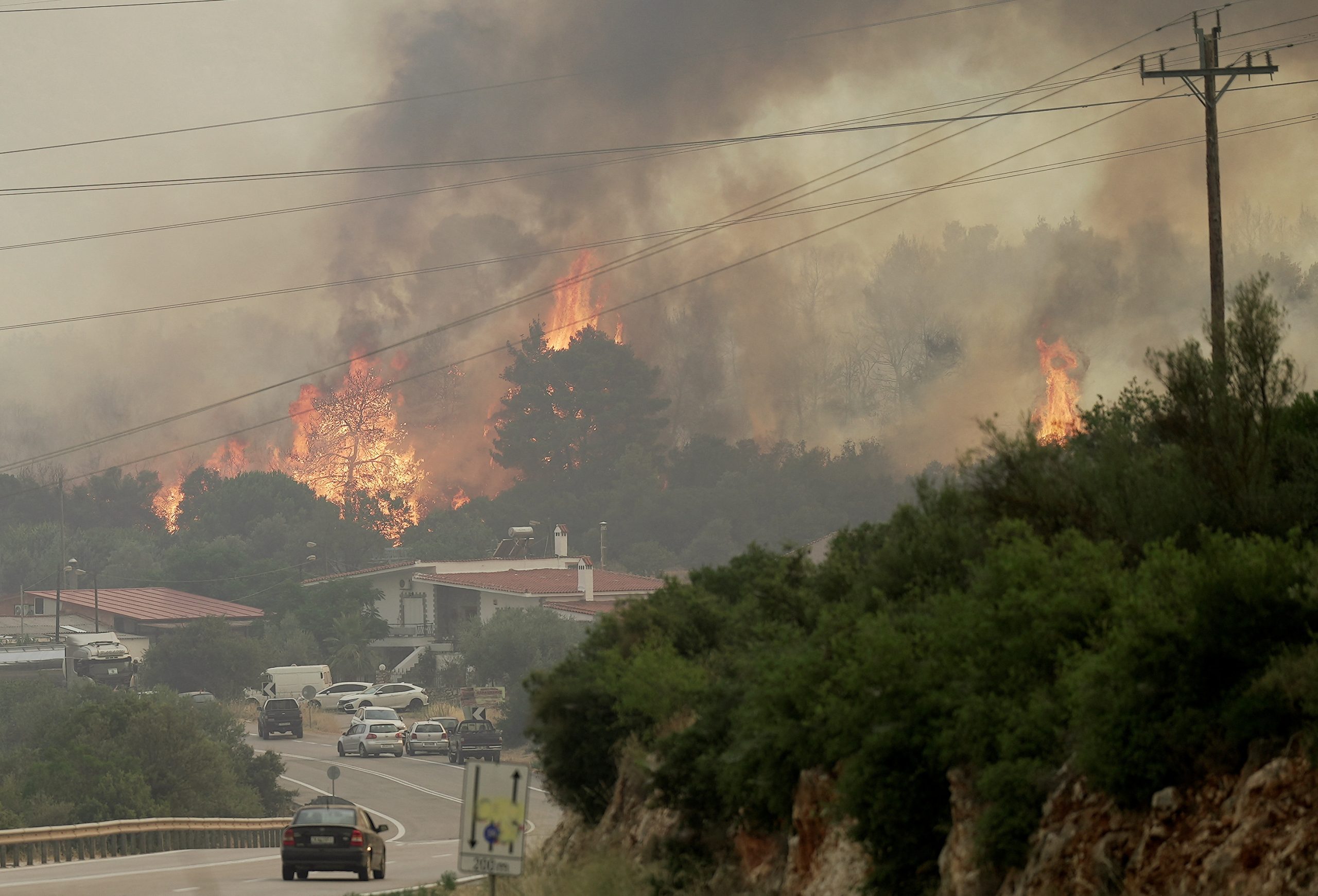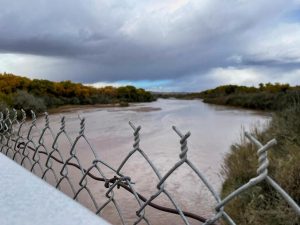Amidst a devastating wildfire crisis on the Greek island of Rhodes, thousands of tourists and residents found refuge in schools and shelters on Sunday. The emergency situation prompted what Greece called its largest-ever safe transport of residents and tourists to safety. As flames closed in on resorts and coastal villages, evacuation efforts included private boats ferrying people away from danger.
An estimated 19,000 individuals were evacuated overnight from homes and hotels as the rapidly spreading fires intensified. The blazes, which had been burning since Wednesday, tore through forests until they reached the southeastern coast of the island, threatening popular coastal resorts.
Holidaymakers recounted their harrowing experiences, with some walking for miles in extreme heat to reach safety. The fires left behind a trail of devastation, with blackened and skeletal trees and dead animals strewn along the roads.
Rhodes, renowned for its beaches and historical sites, attracts a significant number of tourists, particularly from Britain. In response to the unfolding emergency, tour operators Jet2, TUI, and Correndon cancelled flights to the island.
Tourists described their heart-stopping ordeals, including British visitor Chris Freestone, who had to walk 12 miles in scorching heat to escape the smoke. Another tourist, Fay Mortimer, expressed her terror at the situation, stating it was the most scared she had ever been in her life.
The intensifying flames were exacerbated by a spike in temperatures, with the past week witnessing temperatures exceeding 40 degrees Celsius in many parts of Greece. Climate change’s impact on extreme heat waves has been felt across southern Europe and various regions globally.
Apart from Rhodes, emergency services were dealing with fires on the islands of Evia and Corfu, as well as on the mainland in Aigio. The wildfires have affected 10% of hotels in central and southeastern parts of Rhodes. Emergency evacuations were also ordered in several small settlements on Corfu.
Coastguard vessels and private boats played a crucial role in evacuating over 3,000 tourists from beaches. The island’s picturesque village of Lindos, known for its ancient acropolis, was among the areas scorched by the flames.
Efforts to assist evacuees were evident as temporary accommodation, food, water, and medical assistance were provided in conference centers and school buildings.
As climate change continues to influence extreme weather events, Greece and other regions are grappling with the growing challenges posed by wildfires. Authorities remain vigilant, taking necessary precautions to protect lives and property during such emergencies.












